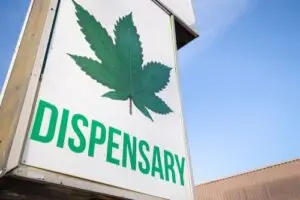What does Prop 2017 Do?
In order to know your rights and how Prop 207 might impact you, the first step is to know what Prop 207 does. It is a substantial piece of legislation, with many provisions. Some of those provisions, like how monies generated by the government from legalization will be apportioned, are not addressed here because they will not have an impact on criminal law-related issues. Others, like licensing issues related to marijuana businesses, will only impact certain entities, and thus are not addressed here. Nevertheless, the sweeping nature of Prop 207 is sufficient that there are many provisions to note. These are highlighted below, with some additional discussion to follow regarding the more noteworthy provisions.
- “Marijuana” as used in the new law, applies to ALL parts of the plant, the seeds, any resin extracted from the plant, and compounds and derivatives therefrom.
- This means not only the leafy version of marijuana is covered, but also wax and oil and other substances derived from the plant.
- In calculating the weight of marijuana under the law, other substances are not counted – so if you have edibles, only the marijuana content counts towards the weight, not the food part, for example.
- Employers may still restrict your ability to use marijuana.
- You may not drive a car or boat, or fly a plane, while under the influence of marijuana.
- A person under 21 is not permitted to possess or use marijuana.
- A first violation under an ounce (five grams if wax or oil) is punishable by a $100 fine.
- Second violation is a petty offense (punishable by fine only).
- Third or subsequent violation is a class 1 misdemeanor (up to 6 months of jail – though Prop 200 may still require no jail).
- You may not use marijuana in a public place (think similar to smoking cigarettes) or open space, or as a passenger in a car.
- Violation in a public place is a petty offense (fine only).
- You are allowed to possess or use one ounce or less of marijuana (or five grams or less of wax or oil).
- No medical card is needed, possession as described is fully legal.
- If you possess more than one ounce, but less than two and one half ounces (twelve and one half grams of oil or wax), it is only a petty offense (punishable by fine only).
- You are allowed to possess, transport, or cultivate six plants or less at your home (no more than twelve plants if two or more adults live in the home).
- Plants must be in a locked closet, room, or other enclosed area to prevent access by minors.
- Plants cannot be visible by the general public to the naked eye.
- Violation of the provisions related to locked room and public view is a petty offense the first time (fine only), a class 3 misdemeanor each subsequent time (up to one month in jail).
- You are allowed to transfer up to one ounce of marijuana (five grams of oil or wax) or six plants to another person, if you are not doing so for “remuneration.”
- There will likely be future arguments about what constitutes “remuneration” – defined as payment for work or services. Generally, remuneration excludes “donations.” To be safe, nothing of value should be taken in return.
- You may possess paraphernalia related to the use, sale, transportation, cultivation, and manufacture of marijuana.
- The mere fact that a person has marijuana in his/her system is not sufficient to charge the person with Phoenix DUI – the state must also prove that the person is impaired, at least to the slightest degree.
- The smell of marijuana (burnt or fresh) is no longer sufficient by itself to justify police investigation of a crime, or police detention of a person, except if police are investigating a DUI.
- Prior convictions:
- The provisions related to prior convictions take effect on July 12, 2021.
- Any prior conviction, misdemeanor or felony, for certain conduct legalized by Prop 207 can be expunged, including the conviction, arrest, charge, and sentence.
- Includes possession, use, or transportation of two and half ounces or less (twelve and a half grams of wax or oil).
- Includes possession, transport, or cultivation of six plants or less in the home.
- Includes possession, use, or transport of paraphernalia.
- To get expungement, you file a petition with the court. The court must grant it if you qualify, and you qualify if the conviction, arrest, charge, or sentence fit meet the circumstances described above.
- If expungement is granted, the records are sealed, and the state may not provide them to anyone but you or your representative. Your rights are restored (unless suspended by some other conviction), and you may say you were never convicted or arrested related to the offense.
- Pending cases will be dismissed with prejudice.
- It is unclear at this time how prior convictions that were used to enhance later convictions will be handled.
Committed to providing exceptional legal service to each and every client through integrity, compassion and experience.
Get StartedSummarizing the Key Points:
As it is plain to see, there is a lot to take in, as the new represents a sweeping change. But to highlight the most important aspects of the new law, it is now legal to possess or use up to one ounce of marijuana (of five grams of wax or oil), as well as paraphernalia related to the use of marijuana. Possession of between one and two and a half ounces (between five and twelve and a half grams of wax and oil) is just a petty offense, punishable by only a fine.
You may not possess marijuana or wax or oil if you are under 21 – however, possession will be a petty offense or a misdemeanor, not a felony.
DUI laws may still be used to punish driving while under the influence, but only if the state can show you are impaired. Merely having marijuana in your system is not enough.
Police cannot search you, or detain you, based merely on marijuana smell. This is very important, as in the past they were allowed to use that as a basis for a stop or detention or search. This is unlikely to impact current cases involving police stops based only on smell due to something called the “good faith” doctrine. But you should discuss this with your lawyer.
You may be able to expunge prior convictions involving marijuana. Additionally, it is likely that the new law will be retroactive, meaning it will apply to past convictions potentially even to reduce the level of conviction. For example, if you were arrested for a sales offense, but possessed less than two and a half ounces of marijuana, depending on the circumstances of the case, you may be able to fight for expungement of that offense.
The expungement issue becomes more complicated if you have subsequent convictions and open cases. Expungement may result in you dropping down to a more lenient sentencing category, or even if you have already been convicted and sentenced for a non-marijuana related offense, your sentence could possibly be subject to reduction if you have marijuana-related prior convictions. You also may be eligible for mandatory probation under Prop 200 for offenses due to the new law. You should consult an attorney about such possibilities.
As always, implementation of new law can be complicated. You should speak to an attorney about how the new law may impact you, especially if you have a prior marijuana-related conviction or are currently facing any marijuana-related charge
Call or text 602-682-5270 or complete a Free Case Evaluation form



